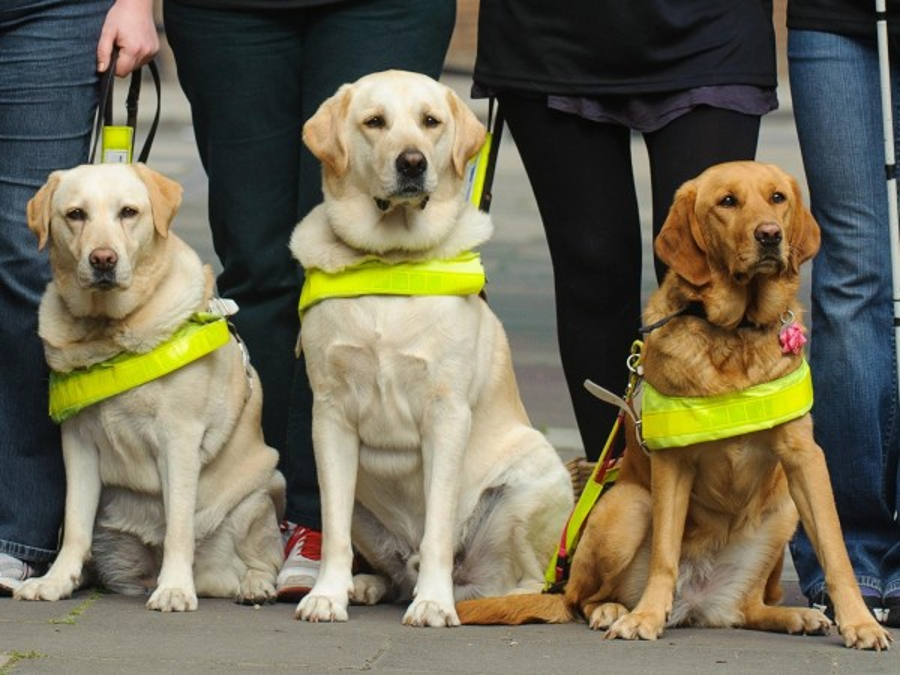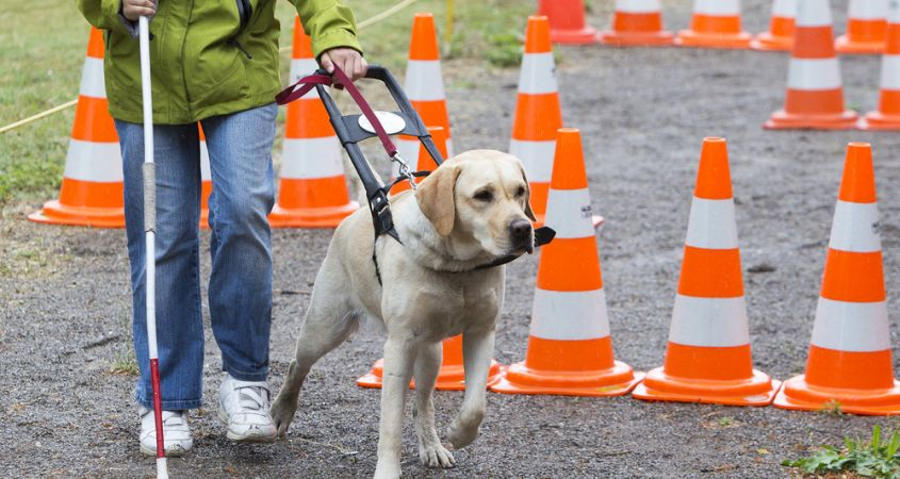On Monday, new studies conducted in Morristown, Ney Jersey, revealed that puppies who were less attached to their mothers are more likely to graduate from training school and become guide dogs for people with visual disabilities.
A study published this week in the journal Proceedings of the National Academy of Sciences, managed by an organization called The Seeing Eye suggests that dog mothers who spend more time licking and milking their puppies are more likely to breed restless and playful dogs.

On the other hand, it is more plausible for other puppies to graduate from their training programs if they stay separated from their mothers, making them quieter and more serious – but equally active and energetic.
There was a notable difference between dogs whose mothers constantly nursed – like human helicopter parents who shield their children from adversities -, and dogs who stayed apart for many reasons and received tougher love. The attention given by these mothers within the first three weeks were the most important in this research.
These dogs usually perform a range of tasks depending on the disability of their masters or comrades. They often help people to go to public places, making it much easier if, for example, the person cannot see, is in a wheelchair, physically disabled, or just don’t want to be alone at the outside.
Finding a good guide dog
To further understand dog’s reactions and responses, especially those trained in helping disabled people, researchers at the University of Arizona coordinated a study on how puppies are affected in their early-life by their moms.
An 115-hour video of 23 mothers and their 98 puppies with five weeks of life were filmed and observed by Dr. Emily Bray – a postdoctoral researcher in the Arizona Canine Cognition Center -, along with her group of undergraduate researchers. Some of those moms licked and snuggled their pups, while others sometimes left and stayed away from their babies. These moms just wanted a time to be alone. Some of them didn’t nurse much laying down because they preferred to stand on their four legs, meaning a little bit more of work for their puppies to eat
“We wanted to know if we could differentiate the moms based on how they interacted with their puppies,” Dr Bray said. “We documented things like her nursing position, how much time she spent looking away from the puppies and how much time she spent in close proximity to her puppies or licking and grooming them.”

After two years, researchers tracked the same dogs and compared the results. They found those whose moms were more attentive, were less likely to graduate from the program and become guide dogs. Those who stayed time next to their mothers – licking the milk coming from them and getting protection from the cold – were just sent to regular pet shops, hoping for some little boy ready to have a new partner.
Early stimuli conditions future behavior
A year and a half later, they searched the older puppies again and put them in hard situations, saw their problem-solving abilities and tested their temperaments. The little dogs met with creepy robotic cats and umbrellas that opened spontaneously, mazes and hard puzzles that made them took decisions to avoid different obstacles staying in their ways. Those who could solve problems faster and were less anxious in front of new and terrifying objects were the ones that could become guides in greater numbers.
Now it’s easier for owners to find dogs disposed and prepared for guidance. The whole training school has new perspectives; they will find these
“There’s a CD that plays all kinds of sounds from the teapot boiling to ambulances and gunshots and thunderstorms, and that plays in the background while the puppies are having happy experiences. So the sounds aren’t likely to stun them,” said Dolores Holle, director of canine medicine and surgery at The Seeing Eye.
There are a lot of chances for the other dogs – those who didn’t become guides – to have fewer health problems and be rarely aggressive or difficult. They are just less serious: so it’s more likely for them to bark to new objects, to not to be focused all the time, and to excessively enjoy little toys and human’s hugs. Of course, for pet dogs these qualities are great.
Source: Daily Mail
